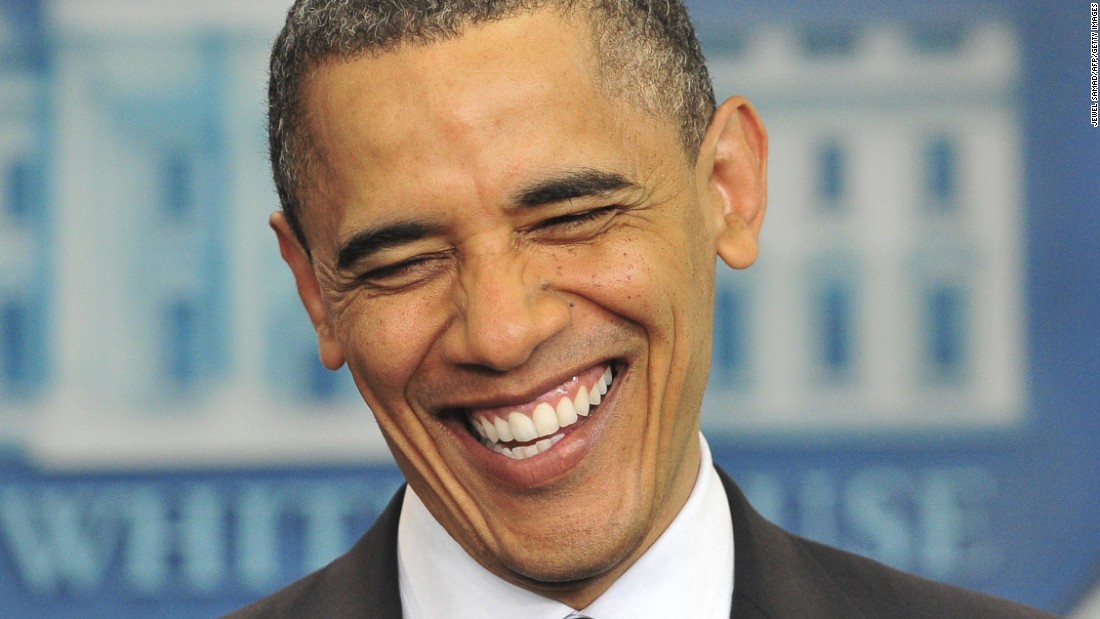 |
| Looks like Barry Hussein Obummer is getting the last laugh. |
Like a lot of progressives -- me, for one -- that find our positions on the Obama presidency complicated by what has disappointed us as much as by what has pleased us, political commentators are beginning to describe the legacy of Barack Obama's presidency as complicated, consequential and, by and large, full of significant accomplishments. Just because it ain't simple doesn't mean it doesn't add up to an historic administration.
Paul Waldman, a well-respected political analyst on the left, has penned a piece exploring the scope and complexity of what Barack Obama will leave behind next year.
When he was running for president in 2008, Barack Obama pointed to Ronald Reagan as a model for what kind of president he would like to be, not because he agreed with Reagan politically, but because Reagan "changed the trajectory of America in a way that, you know, Richard Nixon did not and in a way that Bill Clinton did not." We won't know about America's long-term trajectory after the Obama years for some time, but as he begins his last year in office, it's not too early to say that Obama will probably turn out to be one of the most consequential presidents in recent history, if not of all time. This will be true even though his most important victories are partial and incomplete.Read the whole article. It's an important document.
But it's not the only deconstruction of Obama's legacy to come out this past week. Politico Magazine -- ordinarily firmly fixed in the center-right firmament -- gives it a try in a very long, detailed account of his presidency.
Early in his presidential transition, Obama led a brainstorming session with his policy team about first-term accomplishments. Geithner offered a downer of a reality check: “Your accomplishment is going to be preventing a second Great Depression.”
“That’s not enough for me,” the president-elect shot back. “I’m not going to be defined by what I prevented.”
That attitude defined Obama’s first two years in office, which featured the most energetic flurry of legislation since the Great Society. He wanted to do stuff, not just avoid stuff. He wanted to be a Ronald Reagan of the left. And he believed, as Emanuel put it, that the crisis would be a terrible thing to waste.
Obama began with a stimulus larger than the entire New Deal in real dollars. Widely ridiculed as Porkulus at the time, it is now widely credited by economists with helping to end the Great Recession with short-term economic adrenaline: record aid to the vulnerable that directly boosted 13 million Americans out of poverty; record aid to states that averted 300,000 teacher layoffs; hard-hat projects that upgraded 42,000 miles of road, 2,700 bridges and 6,000 miles of rail; and roughly $300 billion worth of tax cuts for businesses and families.
But with little fanfare, the stimulus also poured cash into Obama’s long-term agenda for reshaping the country. It transformed the U.S. clean-energy sector, blasting an astonishing $90 billion into renewables and other long-neglected green priorities, while birthing a new research agency called ARPA-E. The only investment that got much press was a failed $535 million loan to a solar manufacturer called Solyndra, but that same loan program financed nine of the world’s largest solar farms, among other projects; the overall portfolio is thriving. The green stimulus helped quadruple U.S. wind power, put the first 400,000 electric vehicles on American roads and began a low-carbon transition that helped the United States lead the push for a bold global climate deal in Paris.What struck me about both these articles is how they differ from the Fox News/National Review dismissals of Obama's accomplishments, which are continually echoed by micro-sound bites from the GOP candidates that attempt to make Obama out to be the worst president in history. In the end, Barack Obama will fare quite well as historians evaluate his place in history. Conservative media can breathe out bursts of hot air, but it's generally hard to get them into the history books.

No comments:
Post a Comment